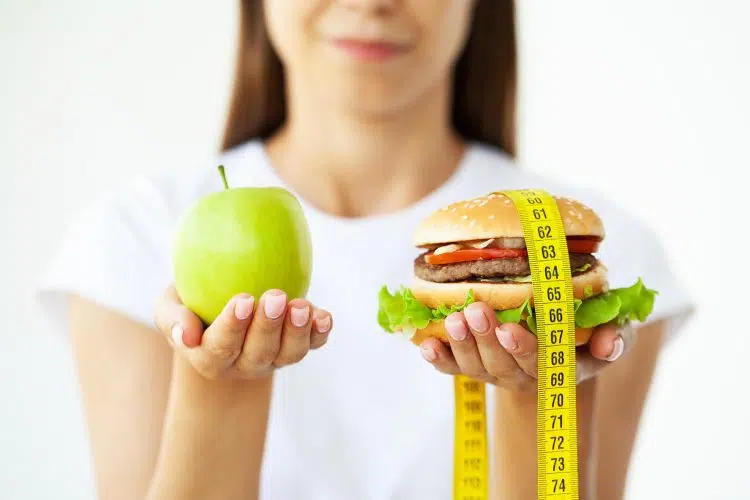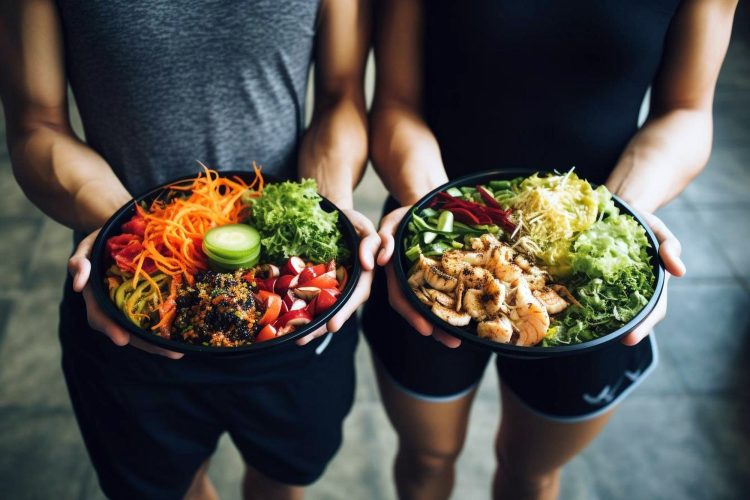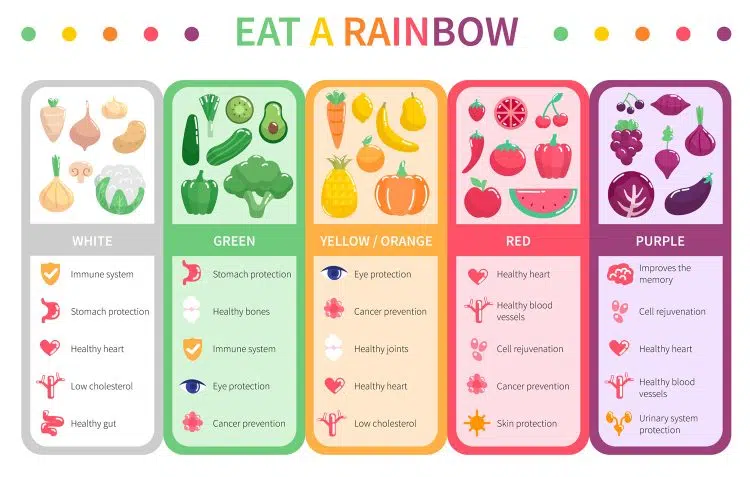Idiom: A well-known phrase or expression with figurative rather than literal meanings used to convey cultural wisdom or commonly-held beliefs.
I’ve been studying exercise nutrition for close to 40 years. During this time, I’ve witnessed incredible advancements in our understanding of nutritional science. The last few decades have been especially exciting. Notable developments include the identification of essential nutrients and a deeper understanding of how our bodies process the food we eat.
However, despite all these scientific breakthroughs, a lot of nutritional advice still stems from the wisdom of our ancestors, captured in numerous idioms or everyday expressions.
Sayings such as “an apple a day keeps the doctor away” and “you are what you eat” reflect a long-held understanding of the relationship between food and health. Without the benefit of modern-day science, our ancestors instinctively knew how profoundly diet affected the body and mind.
While some nutritional idioms are somewhat inaccurate or misleading, others are right on the money and provide no-nonsense advice on healthy eating.
In this article, I explore some of the most well-known food and nutrition idioms, exploring their meanings and evaluating their merit.
An Apple A Day Keeps the Doctor Away
“An apple a day keeps the doctor away” is one of the most famous food idioms. It suggests that eating apples can help prevent illness. However, like most idioms, this advice is not meant to be taken literally. Instead, it offers good general advice on how eating fruit and vegetables benefits your health.
Apples are undeniably healthy. They contain significant amounts of several critical nutrients, including:
- Vitamin A
- Vitamin B (B1, B2, B6)
- Vitamin C
- Vitamin E
- Vitamin K
- Calcium
- Magnesium
- Phosphorous
- Potassium
- Catechin
- Chlorogenic acid
- Quercetin
- Soluble fiber
- Insoluble fiber
- Water
However, their nutrient density is relatively low, and you’ll need to eat a lot more than a single apple to put your doctor out of work! That’s especially true if your diet contains lots of nutrient-free junk food.
An apple is undeniably better for you than a candy bar, but you’ll need more than an apple a day to get the nutrients your body needs to be healthy.
Key Takeaway: Apples are unquestionably healthy but they aren’t a magic bullet for better health. Eating an apple a day is good advice, but it is not enough to ensure you remain free from illness and disease (1).
You Are What You Eat
Whoever first uttered the words, “You are what you eat,” was one smart cookie – pun intended. That’s because food has a profound impact on every aspect of your health, performance, and appearance. This makes a lot of sense when you view food as fuel.
Consider a car engine. If you put dirty, low-quality, or the wrong type of fuel into a car, the engine will be less efficient, produce less power, and be more prone to breakdowns. It could even shorten its lifespan.
Your body is infinitely more complex than a car engine and requires a much more varied mix of fuel and nutrients to function at its best.
And yet, many people fill up on junk food, starving their bodies of the nutrients they need for optimal performance. Some even pay more attention to the quality of the gas they put in their cars than they do to the food in their meals – oh, the irony!
In contrast, eating plenty of healthy, natural foods provides your body with more than just energy; it also contains all the nutrients you need to be healthy.
We can also take the expression, “You are what you eat,” more literally.
Whatever you eat, your body digests, processes, and metabolizes your food down into its chemical components. These chemicals then interact with your cells, organs, and systems, often becoming part of you.
Needless to say, if you are filling up on unhealthy food, it should be no surprise that poor health is often the result.
Key Takeaway: “You are what you eat” is probably the truest food and nutrition idiom. Your food affects your body at a cellular level, interacting with every organ and system. Thinking of food as fuel can help you make better nutritional choices. Remember that food affects you not only in the short term but in the long term, too.
Breakfast Like A King, Lunch Like A Prince, Dine Like A Pauper

This idiom suggests that breakfast is the most important meal of the day and that subsequent meals should be progressively lighter for better health and easier weight management. Research published on PubMed supports this as a valid approach for weight management.
A big breakfast is thought to increase your metabolic rate for the rest of the day, help ward off hunger and cravings, and aid in maintaining mental clarity (2). The same researchers also suggest that eating a large nighttime meal increases the risk of weight gain (3).
However, plenty of people skip breakfast simply because they aren’t hungry first thing in the morning. Others find eating a large morning meal impractical. For them, breakfasting like a king is highly unappealing.
Interestingly, humans evolved as opportunistic eaters. Our early hunter-gatherer ancestors could not preserve and store food overnight and probably ate their largest meal toward the end of the day. Breakfast was not on the menu, unless you count a few scavenged nuts and seeds.
This style of eating is echoed by several diets including Intermittent Fasting (IF) and the One Meal a Day Diet (OMAD). Skipping breakfast and eating the majority of your kilocalories at the end of the day is also a scientifically backed approach to better health and weight management (4).
Key Takeaway: While this idiom makes some sense, it doesn’t apply to everyone. Some people will benefit from front-loading their day with a big breakfast, while others can skip their morning meal and eat a larger dinner. Ultimately, both approaches work, and it’s up to you to determine the best one for your needs.
Let Food Be Thy Medicine and Medicine Be Thy Food
Dating back to 460 BC, “Let food be your medicine and medicine be your food” is probably the oldest nutritional idiom in this article. Attributed to the Greek physician Hippocrates, this saying stresses the unbreakable link between diet and lasting health.
There are many diseases that are caused by eating the wrong foods, or that can be avoided or cured by eating the right foods. Examples of this include:
- Anemia – lack of iron
- Beriberi – lack of vitamin B1
- Diabetes – excess sugar
- Hypercalcemia – excess calcium
- Hyperkalemia – excess potassium
- Hyperlipidemia – excess lipids
- Hypertension – excess salt
- Kwashiorkor – lack of protein
- Obesity – excess kilocalories
- Osteoporosis – lack of calcium
- Rickets – lack of vitamin D
- Scurvy – lack of vitamin C
While you will (hopefully) never suffer from beriberi or kwashiorkor, it’s clear that many common health issues can be prevented with a balanced diet. So, if you want to live a long, healthy life, you should probably consume more natural, nutritious meals and avoid excess junk food.
Key Takeaway: Let food be thy medicine and medicine be thy food underscores the idea that nutritious food can serve as a powerful tool for maintaining and restoring health. Like the saying, “You are what you eat,” it’s clear that there is an irrefutable link between diet and health.
Eat the Rainbow
While a well-known candy has adopted this idiom, the original use of it had nothing to do with multicolored sweets. Instead, this saying suggests that consuming a variety of colorful fruits and vegetables is one of the best ways to ensure you get a wide range of nutrients in your diet.
I suggest using a tricolor approach to choosing fruits and vegetables for your meals. In other words, make sure you have at least three different colors. Here are a few examples:
- Carrots, zucchini, tomatoes
- Spinach, bell peppers, strawberries
- Broccoli, carrots, oranges
- Cauliflower, red cabbage, blueberries
- Green beans, yellow squash, mango
- Asparagus, purple potatoes, peaches
While not an exact science, it’s often true that different colored fruits and vegetables contain different nutrients. Therefore, by mixing colors, you are more likely to get a good blend of vitamins, minerals, phytochemicals, antioxidants, etc.
Key Takeaway: Create brightly colored meals of at least three different colors to ensure you get a variety of nutrients. Consume different combinations several times a day to provide your body with the nutrients it needs for optimal health and performance.
You Can’t Out-Exercise A Bad Diet
Go to any gym, and you’ll inevitably see people trying to achieve the impossible – out-exercise a bad diet. By this, I mean they train hard and often but then fuel their efforts with plate after plate of junk food.
While junk food contains plenty of calories, it’s largely devoid of the essential nutrients your body needs to function correctly. Consequently, a poor diet will undermine your gym efforts, and while you may look fit and healthy, you could actually be in pretty bad shape “under the hood.”
Exercise is good for everybody’s body, but no amount of working out will protect you from the dangers of an unhealthy diet. In fact, your diet could be the very reason you cannot lose weight or build muscle despite your time in the gym.
Key Takeaway: Even the best workout won’t undo the damaging effects of a poor diet. Exercise doesn’t supply your body with nutrients. Working out makes you fit, but if you want to be healthy, you must build your workouts on the foundation of a nutritious diet.
Related: Fix Your Diet Forever in Six Weeks!
Closing Thoughts
Diet and healthy eating can often seem like very complicated subjects. That’s because a lot of the science is complex and frequently contradictory. The media make it even harder to decide what to eat, as each week, they champion one food or diet while labeling another as unhealthy.
For example, depending on who you read:
- Fats are either critical for your health or will clog your arteries and kill you.
- Carbs cause weight gain or are essential for athletic performance.
- Creatine is a dangerous steroid or a vital nutrient for your muscles and brain.
- Plant foods are best, but watch out for all the pesticides, herbicides, GMOs, etc.
- Drink more water, but don’t drink too much, or you may suffer from water intoxication.
- You can get all the vitamins and minerals from food, but everyone should take supplements.
It’s hardly surprising that so many people are confused about what constitutes a good diet!
While food idioms don’t hold all the answers, they do provide a lot of knowledge and wisdom. Most of them contain at least a grain of truth and can help make deciding what to eat considerably easier.
So, don’t worry too much about the latest media-fueled food or diet craze. It’ll be something different next week, anyway. Instead, look to your ancestors for guidance. The chances are that the idioms of the past contain most of the information you need to eat healthily.
Related: Common Exercise and Nutrition Science Terms Explained!
References:
- Raskin I, Ripoll C. Can an apple a day keep the doctor away? Curr Pharm Des. 2004;10(27):3419-29. doi: 10.2174/1381612043383070. PMID: 15544525.
- López-Sobaler AMª, Cuadrado-Soto E, Peral-Suárez Á, Aparicio A, Ortega RMª. [Importance of breakfast in the nutritional and health improvement of the population]. Nutr Hosp. 2018 Sep 7;35(Spec No6):3-6. Spanish. doi: 10.20960/nh.2278. PMID: 30351152.
- Lopez-Minguez J, Gómez-Abellán P, Garaulet M. Timing of Breakfast, Lunch, and Dinner. Effects on Obesity and Metabolic Risk. Nutrients. 2019 Nov 1;11(11):2624. doi: 10.3390/nu11112624. PMID: 31684003; PMCID: PMC6893547.
- Lopez-Minguez J, Gómez-Abellán P, Garaulet M. Timing of Breakfast, Lunch, and Dinner. Effects on Obesity and Metabolic Risk. Nutrients. 2019 Nov 1;11(11):2624. doi: 10.3390/nu11112624. PMID: 31684003; PMCID: PMC6893547.
Tip: If you're signed in to Google, tap Follow.














